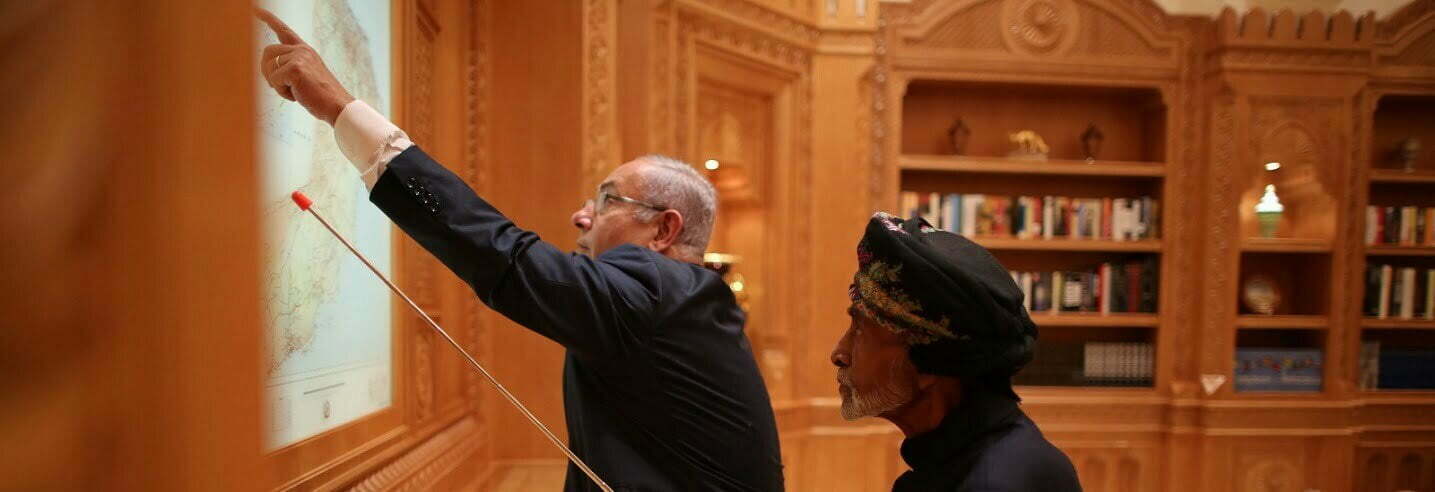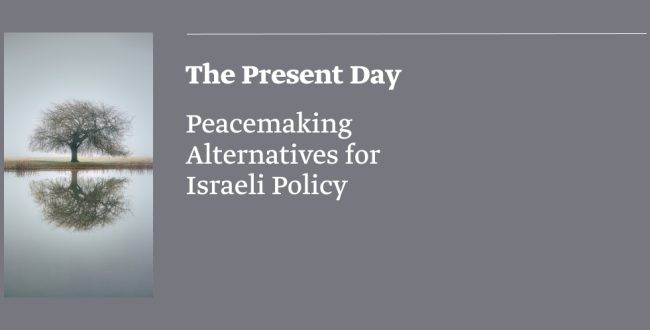Israel’s ties with the nations of the Arabian Peninsula are developing at a rapid pace, to the surprise of many Israelis, Palestinians, and Arabs throughout the Middle East. These relations represent much more than potential peace between Israel and its neighbors; rapprochement of this sort presents governments with records of human rights violations the opportunity to cooperate and support one another’s grasp on power and influence.
Since Prime Minister Benjamin Netanyahu’s visit to Oman in October 2018, media and intellectual discourse in Israel have been raving about these warming ties. Numerous articles report on meetings between Israeli and Gulf government officials, Israel’s participation in sporting events and international gatherings such as EXPO2020 in the UAE, as well as tourism opportunities. However, these developing diplomatic and economic relations between Israel and the Gulf states, especially with Saudi Arabia, the UAE and Bahrain, address critical security concerns of the regimes currently in power, some of which justify controversial measures to monitor and neutralize threats.
Many individuals and organizations throughout the region criticize these developing ties, primarily expressing concerns regarding the normalization of the occupation and the constant violation of Palestinian rights. Not only do these burgeoning relations have the potential to threaten Palestinian lives and political ambitions, but they also compromise critical voices in social, cultural and political spheres in the Gulf, in Israel (especially in the Occupied Territories), and throughout the world.
The relationship developing over the past few years between Netanyahu’s government and Gulf leaders is largely based on cooperation against the Iranian threat and the war on terror, earning President Trump’s sympathy and support for the budding partnership. These leaders (along with regimes in China, India, and other nations) share a fear of radical Islam both within and external to their borders. In the name of this joint struggle against terrorism, leaders frequently resort to racist policies toward their Muslim citizens, or, in the case of the Gulf states, toward certain Islamic sects (such as Shi’a Muslims in Saudi Arabia and Bahrain, or Muslim Brotherhood affiliates in the UAE).
Indeed, terrorism is a real threat that can ruin lives and disrupt the social order, and there have been successful joint operations led by Israel and the Gulf states that have saved civilians from peril. However, under the pretext of security, Bahrain, Saudi Arabia and the UAE have enacted laws granting government entities the authority to violate freedom of expression, the right to a fair trial, and the right of association and protest. These laws have led to an increase in the number of arbitrary arrests and enforced disappearances, as well as increasingly harsh punishments. As a European intelligence officer told the Washington Post anonymously: “The tools you need to combat terrorism are the same ones you need to suppress dissent.” Many Gulf states have developed extensive surveillance and espionage systems within civilian spaces that allow them to track movement and daily lives of their residents.
Israel is known to be a leader in technological innovation related to surveillance (as Netanyahu employs these mechanisms to track the spread of the coronavirus), which are often tested initially on the Palestinian population. Prior assessment of the products’ effectiveness on local populations increases the value of Israeli security technology, marketed around the world. Many of Israel’s customers include dictatorial regimes in developing countries that face internal threats from their own populations. For example, Israel sold $ 11 million worth of weaponry to Myanmar in 2017, a country condemnned by the UN for committing genocide against its Muslim minority population.
When it comes to cyber security in Israel, it is becoming increasingly difficult to discern where the governing establishment ends and the private sector begins, as official and private entities work together to promote an international reputation for cutting edge technological solutions. Israeli companies, such as BlackCube and Psy-Group (the latter shut down after being accused of interfering in the previous US presidential election), are run by former security officials who utilize their intelligence training to offer services usually reserved for military use.
The Cyber Law in Israel is designed to protect civilians from virtual attacks, although it simultaneously permits the collection of data on the private activity of internet users, and threatens the state’s democratic function. The National Cyber Security Authority is the executive government entity responsible for dealing with cyber-related issues under the authority of the Prime Minister’s Office, its mission is to increase cooperation between government entities, the security apparatus, academia, industrial bodies, businesses and other relevant cyber bodies, and to bridge the gap between private sector ventures and security targets. Indeed, the development of the cyber security sector has created an interconnected reality in which private companies cooperate with government agencies according to political agendas, benefitting from official support and influenced by national security developments.
Not only do Israel and the Gulf states use similar tactics in the fight against terrorism, but Israel is known to have helped the UAE and Saudi Arabia acquire sophisticated methods of monitoring civilian activity. For example, the Israeli company, NSO Group, is currently under investigation for the spyware ‘Pegasus’, which purportedly assisted the Saudi government in tracking and murdering dissenting journalist Jamal Khashogji. Pegasus was also allegedly used by the UAE government in detaining human rights advocates, such as Ahmed Mansour, arrested in 2016. The Israeli government had approved the deal between NSO Group and Gulf regimes, as officials on both sides continue to seek more opportunities for similar transactions.
This cooperation is also carried out through informal channels. For example, the Emirati company DarkMatter hired Israeli programmers from intelligence units such as 8200 to engineer cyber operations against those who considered to be a threat to the regime’s power or stability, both within and outside the state’s borders. This private company is known to have close relations with the UAE government, as 80% of its clients are government agencies. The company’s founder and chief executive, Faisal Al-Banai, acknowledged that “the only country in the region that’s strong in cybersecurity is Israel,” displaying that he is not ashamed to cooperate with citizens of a country considered an enemy.
Not only do the regimes in Israel and the Gulf benefit from mutual support for security issues, but they occasionally struggle with the same enemies. Both Israel and the Gulf states in question claim that the Muslim Brotherhood and their affiliates threaten their nations’ security, a shared fear that has influenced President Trump’s inclination to define the Brotherhood as a terrorist organization and to deny its political legitimacy. additionally, these regimes perceive outspoken Palestinian activists as a threat to their countries’ global reputation, especially when human rights violations are condemned. The former editor of the ‘Al-Quds Al-Arabi’ newspaper, Abdel Bari Atwan of Palestinian descent, was threatened by intelligence agencies from Israel and Saudi Arabia for condemning the Occupation along with human rights violations in the Gulf. Indeed, activists speaking out against the violation of civil and human rights often condemn the crimes committed by both Israeli and Gulf regimes, uniting these leaders in silencing dissent.
Indeed, the nature of today’s warfare is much different than it used to be. On the virtual battlefield, the borders between states are becoming increasingly blurred, and a new battle is underway between those who are being watched and who surveil. Residents of the Middle East – Israelis, Palestinians and Gulf nationals – face the same threats as regimes unite with private sector elites in the cyber technology sector, using unregulated, state-of-the-art technological tools to justify violations of basic rights in the name of security.

















